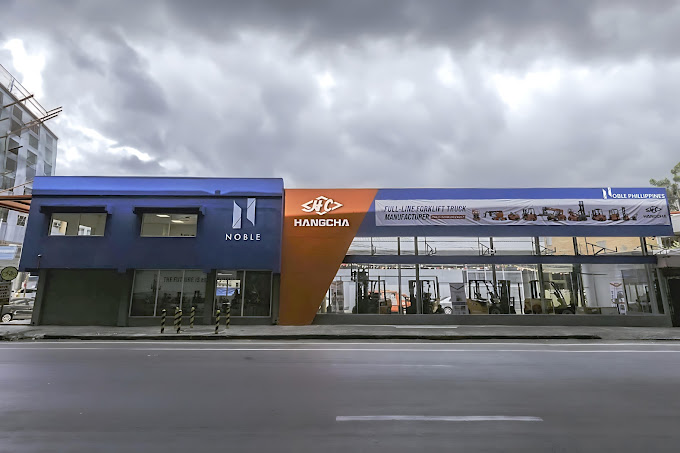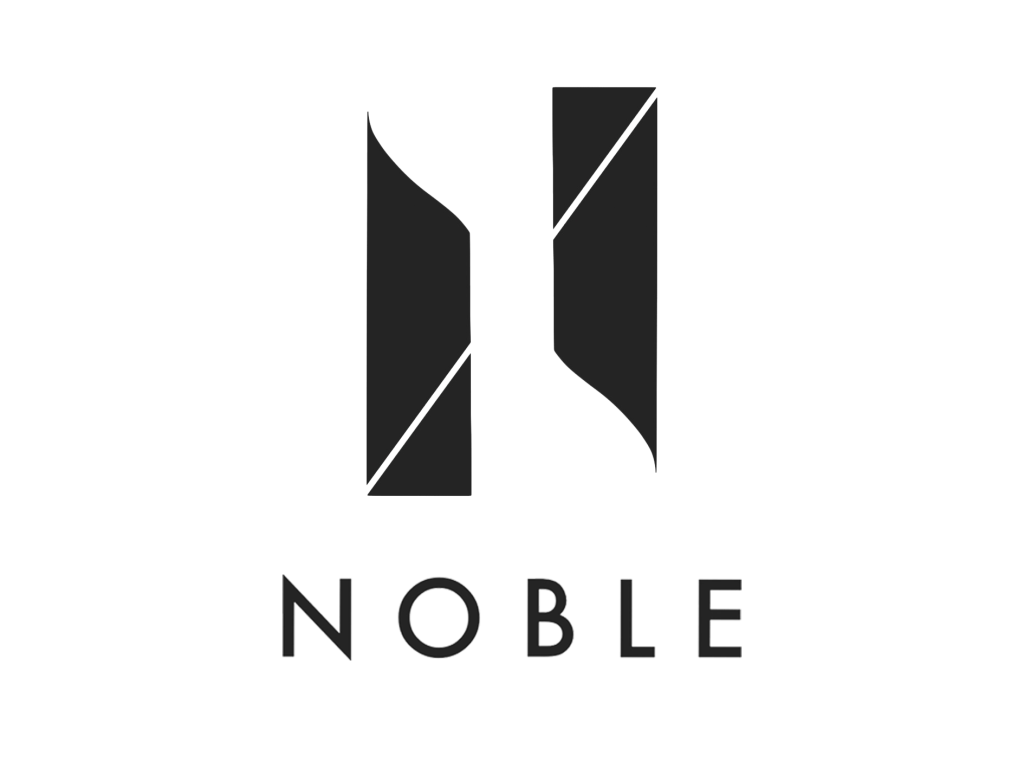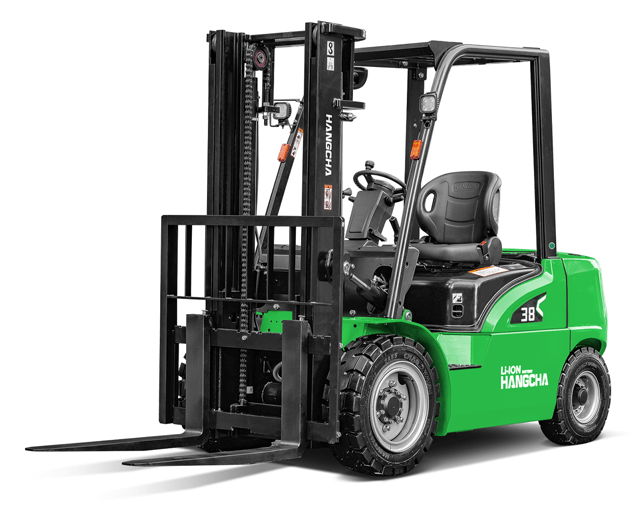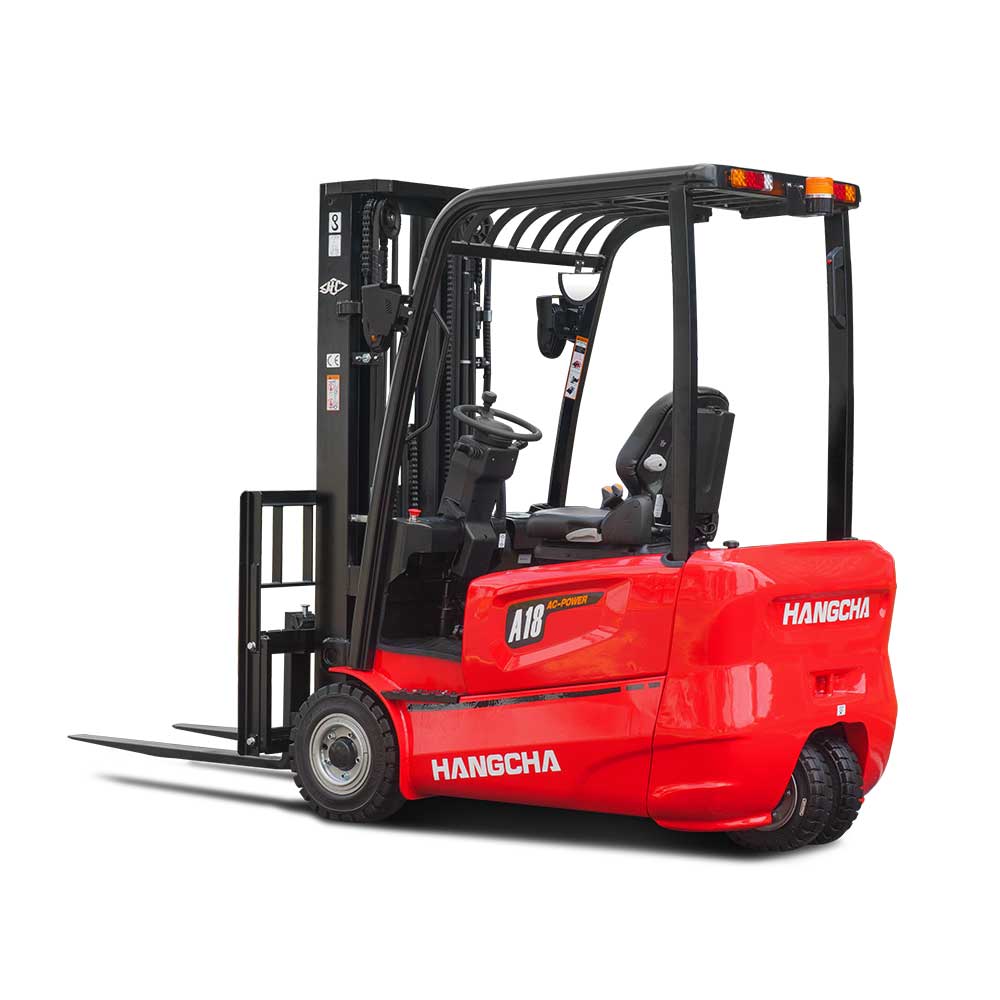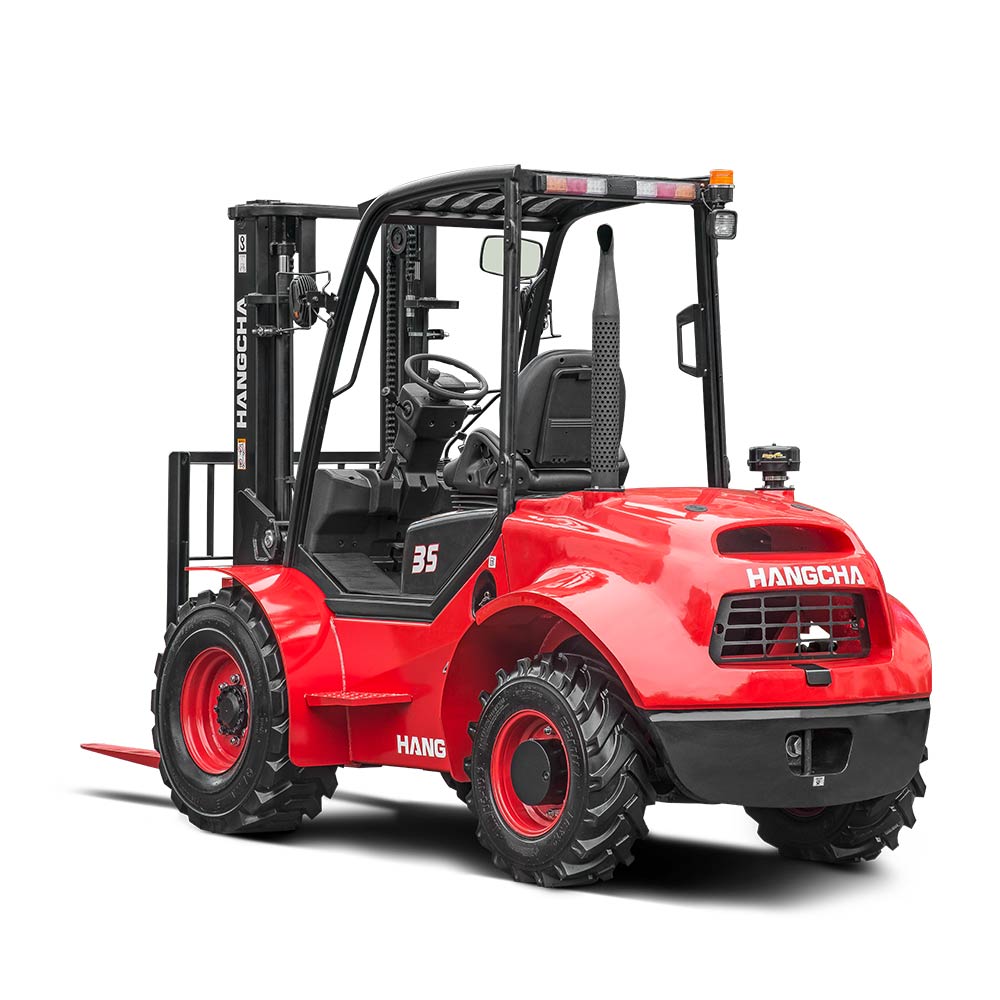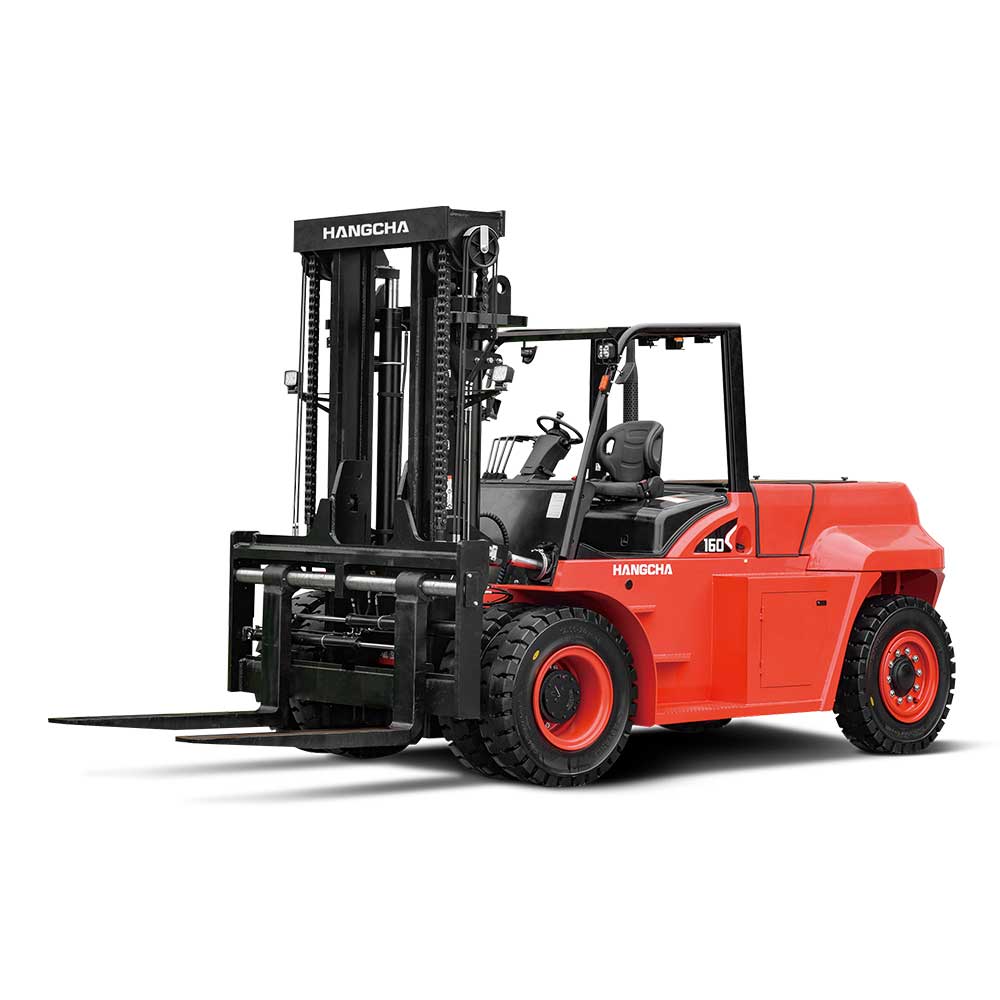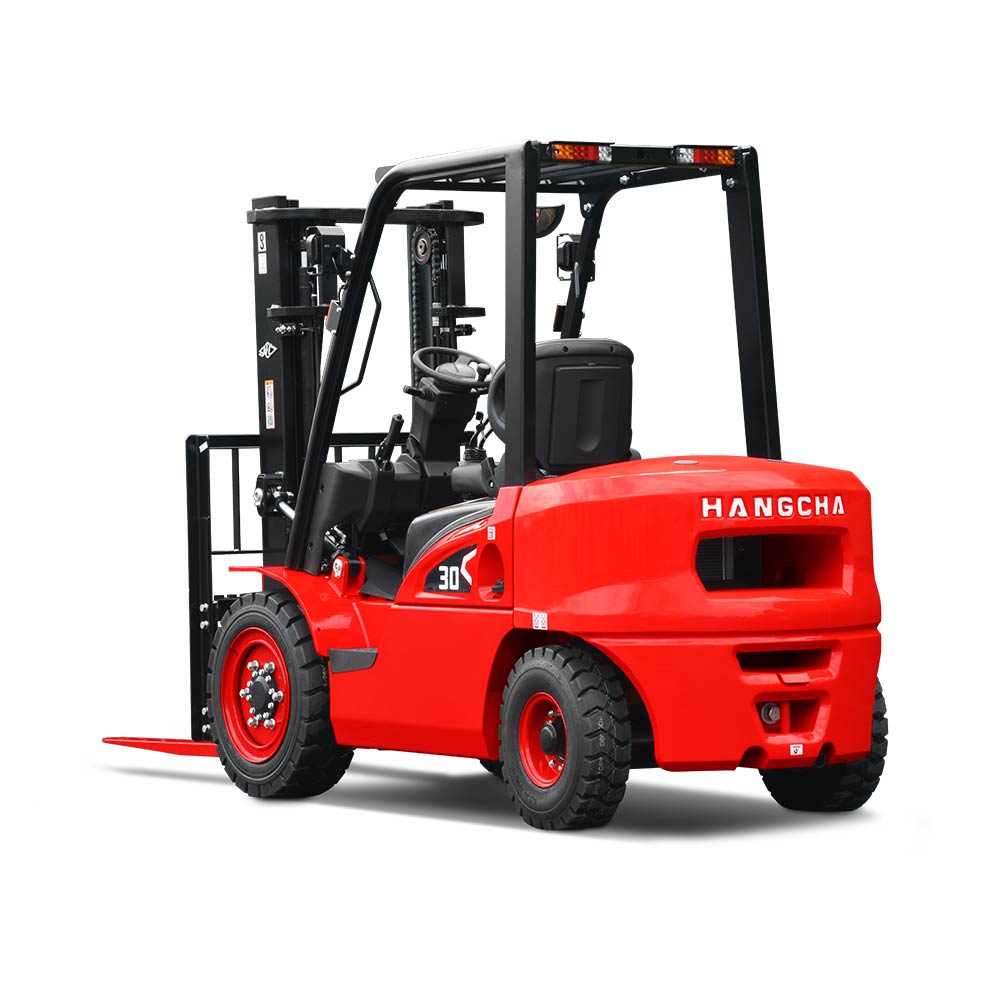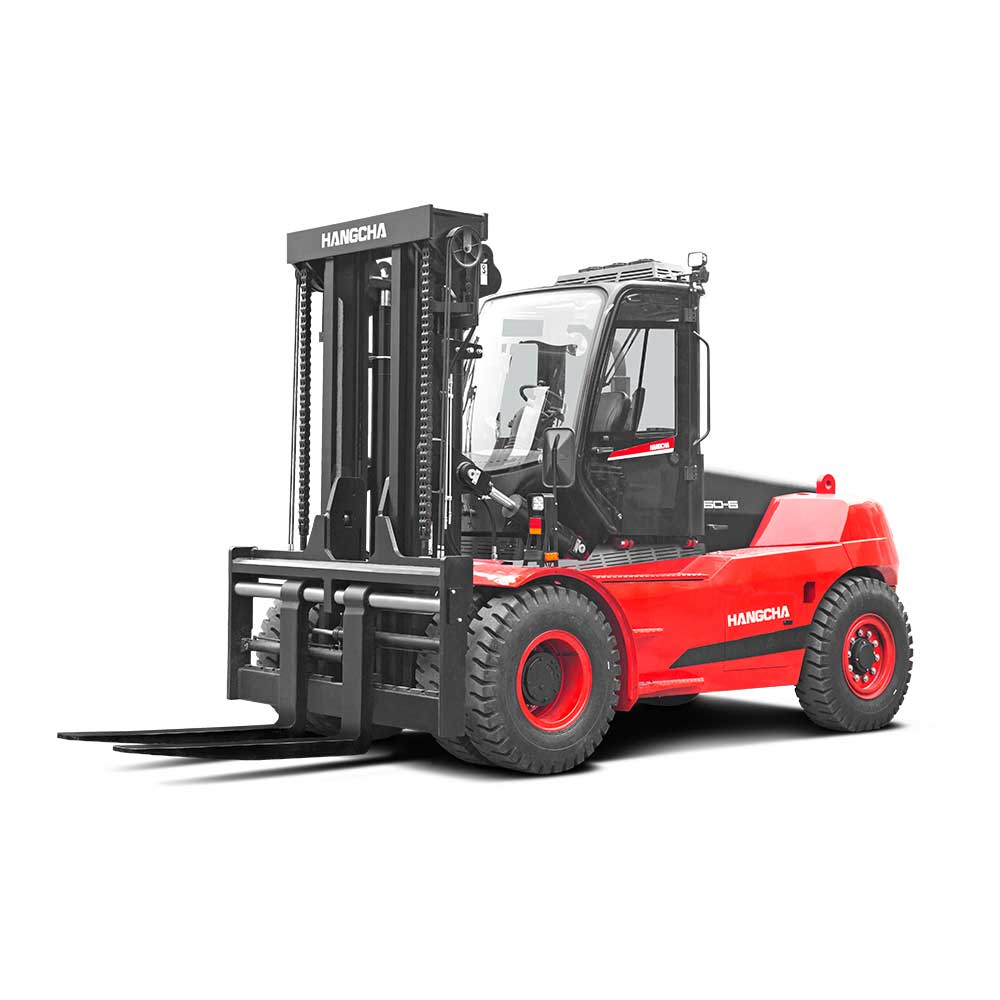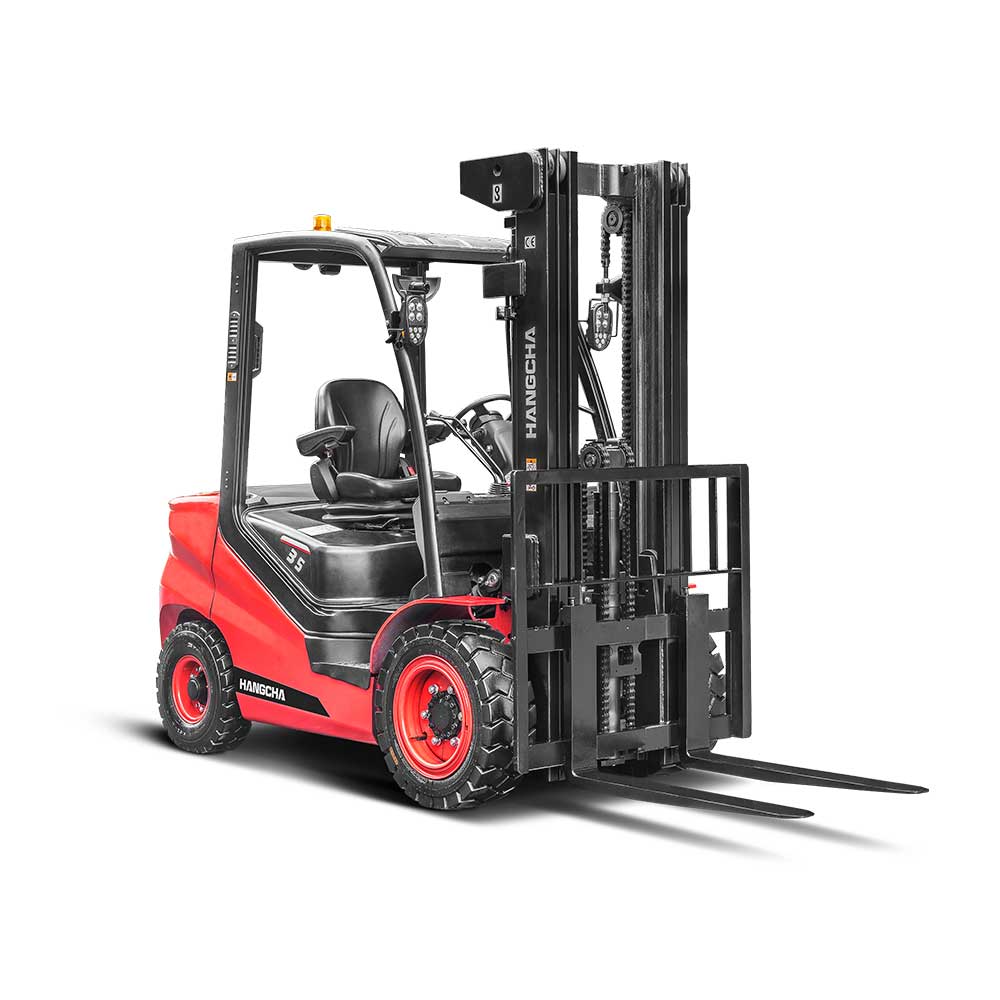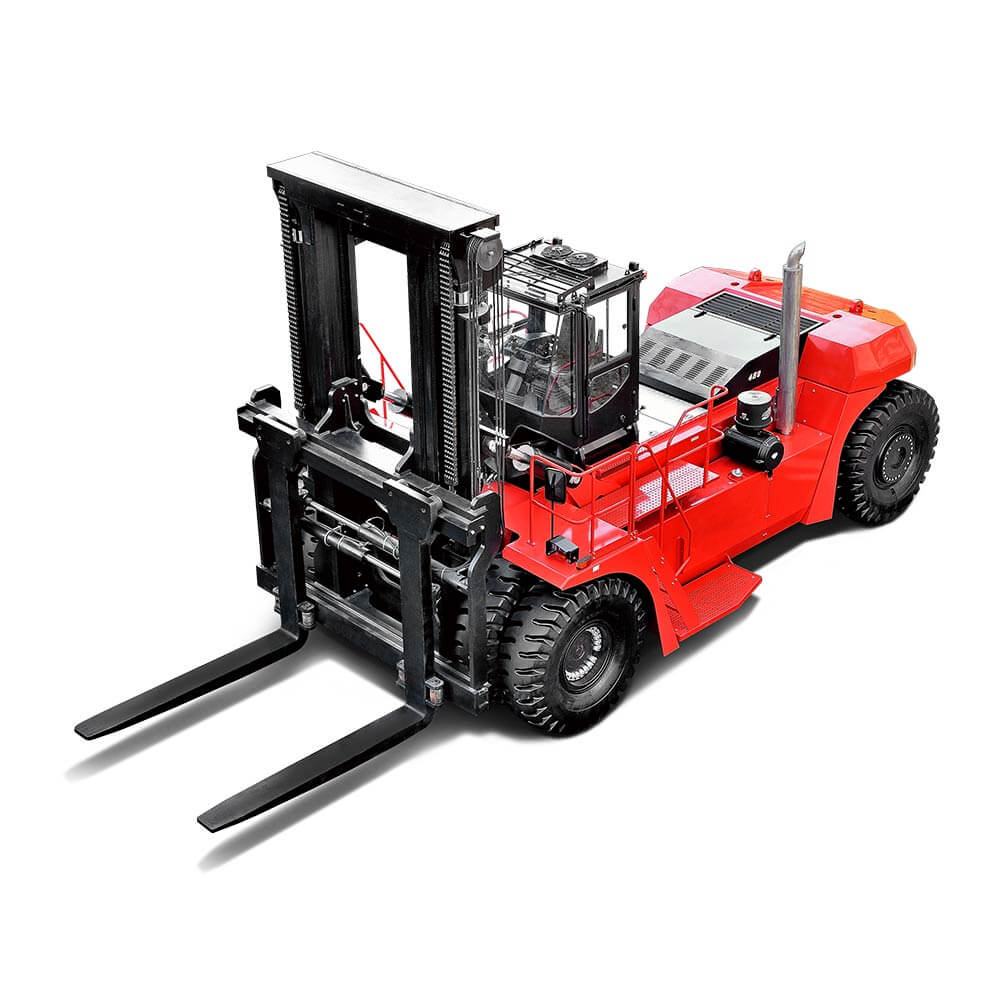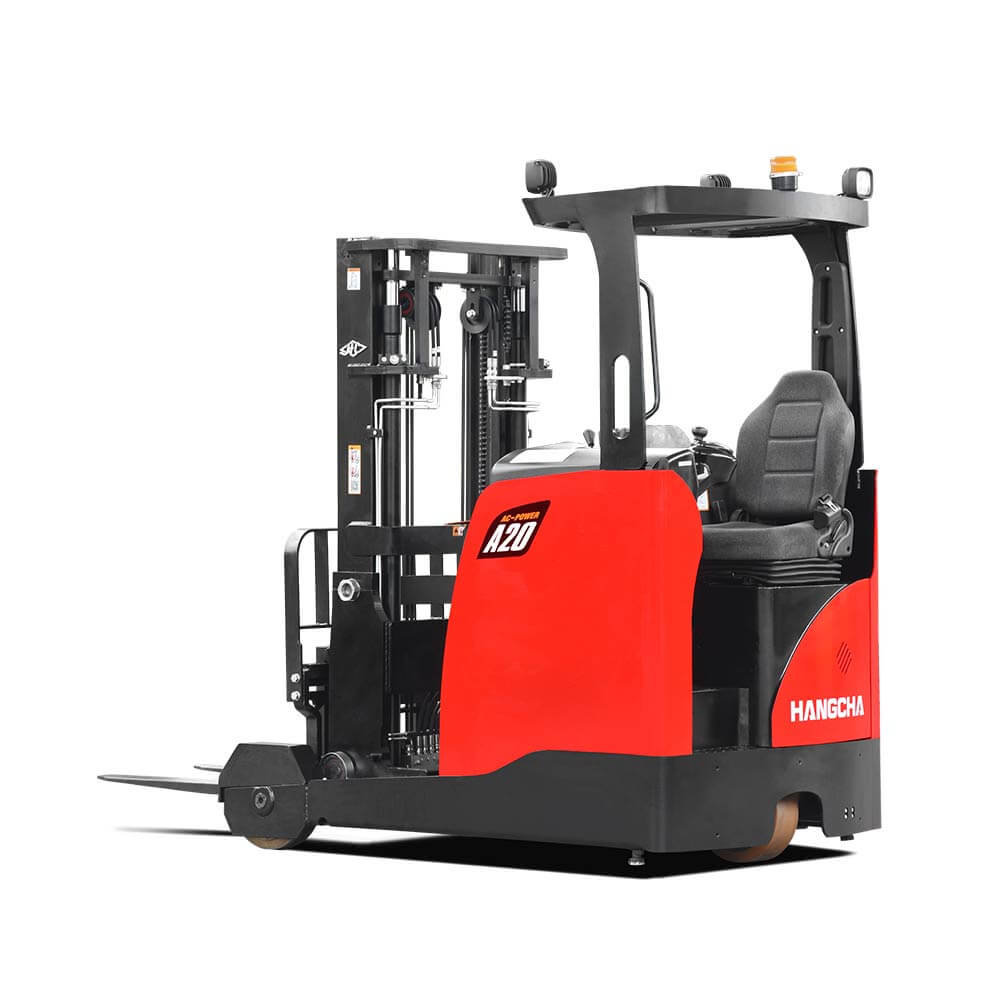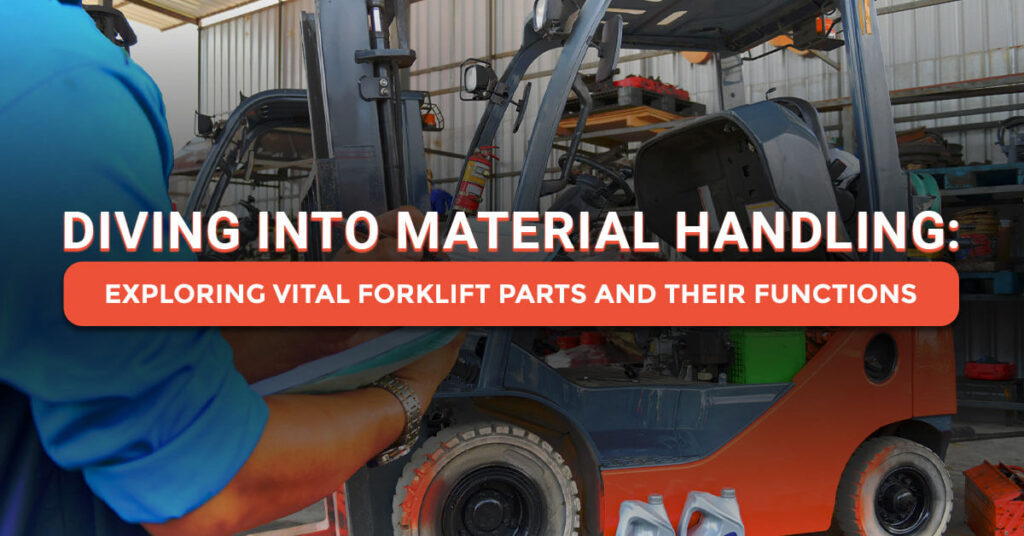Understanding various forklift parts and their purpose is essential if you work in an industry reliant on material handling equipment. To master the world of forklifts, it’s crucial to have a firm grasp on the parts that make up these special machinery. From the mast down to the hydraulic system, each component plays a critical role in the operation of a forklift.
Knowing these parts and how they interact to form a powerful machinery will not only enhance your understanding of forklifts. This will also improve your knowledge of maintenance and ultimately improve your efficiency and safety in your workplace.
Forklift Parts: The Backbone of Material Handling
Like a puzzle, each part works to complete the whole picture. Each mechanism is vital in ensuring smooth and safe material handling processes. So, whether you’re an experienced forklift operator, a manager overseeing maintenance, or just want to learn about the vital parts, this article is your comprehensive guide to familiarizing yourself with the forklift parts. Let’s dive in and explore the top 10 forklift parts together.
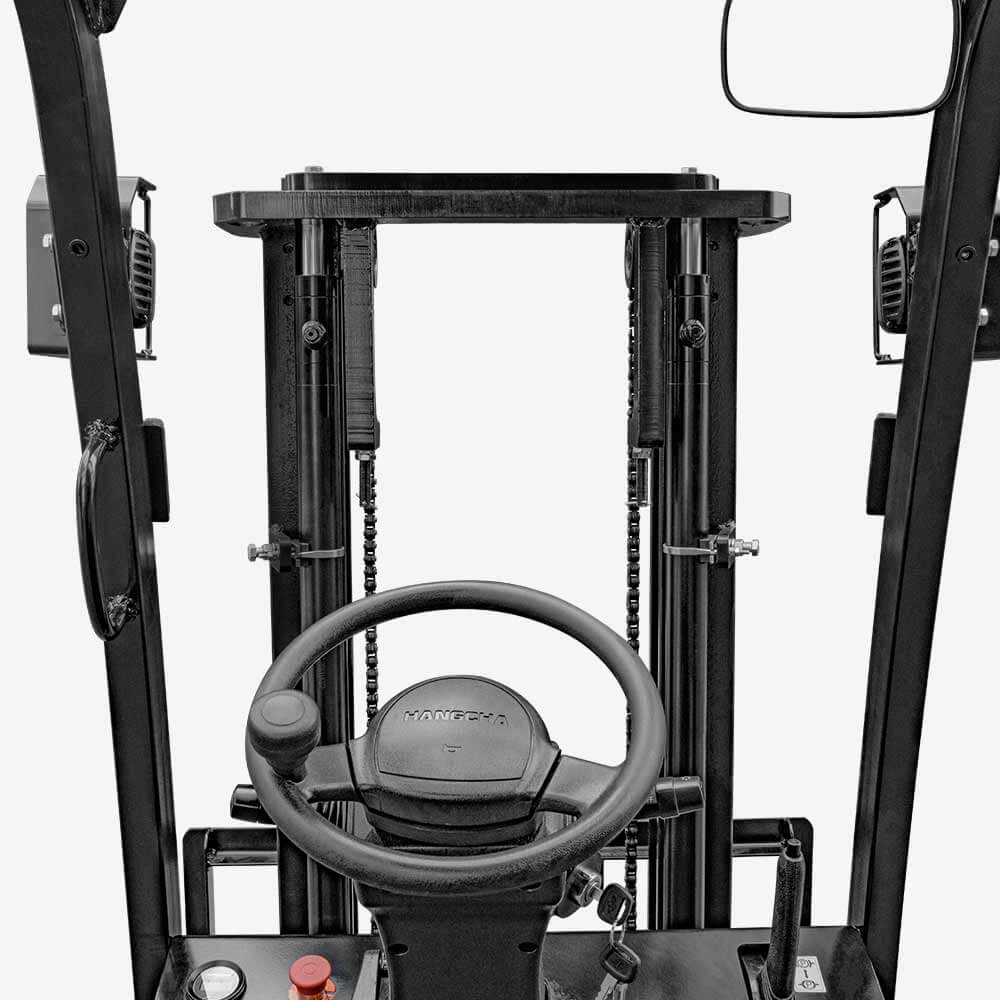
Mast Assembly
The mast assembly is the vertical component that houses the lifting mechanism of the forklift. It comprises uprights, rollers, chains, and other parts, including the lift cylinder. This section of the forklift enables the forks to be raised and lowered and tilted forward and backward. Its primary function is to provide the necessary height and stability.
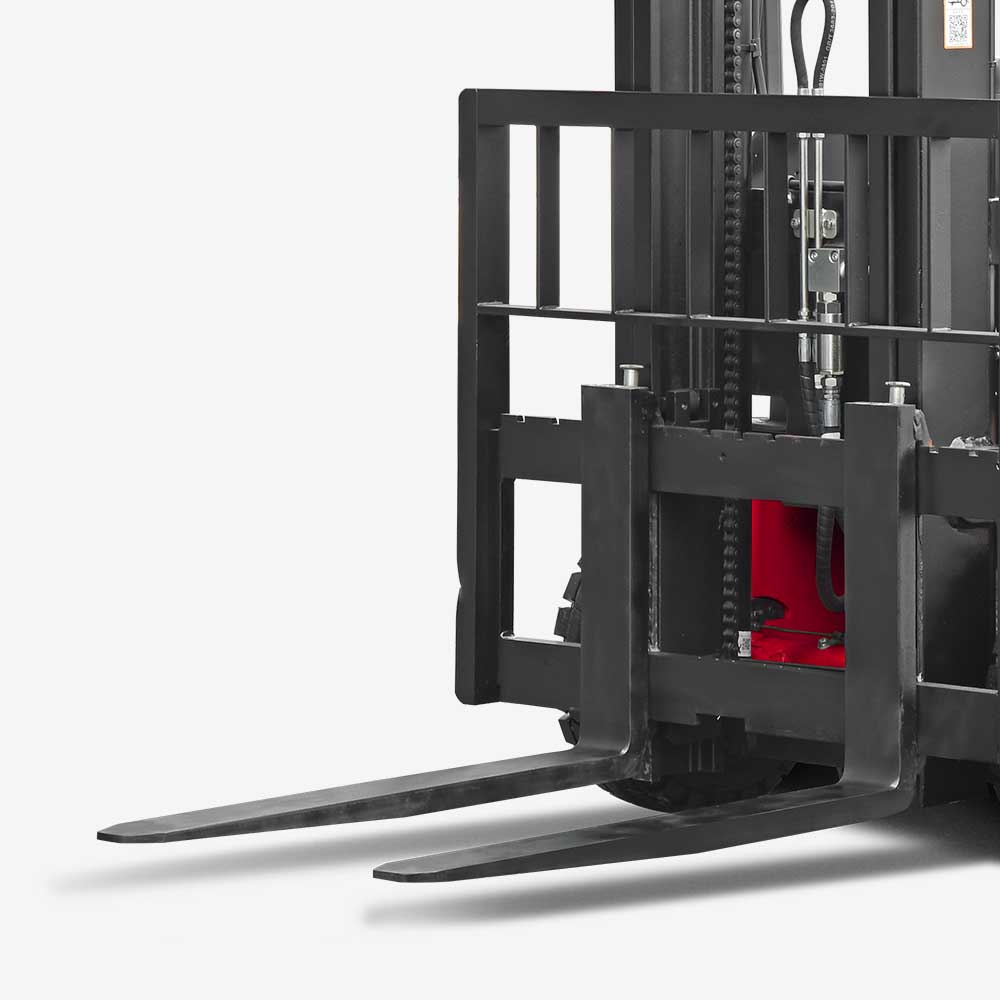
Forks
The forks are often called tines. These components are attached to the front of the forklift and come in various lengths and designs depending on the load type. Its function is to support and carry loads, making them an indispensable part of any forklift.
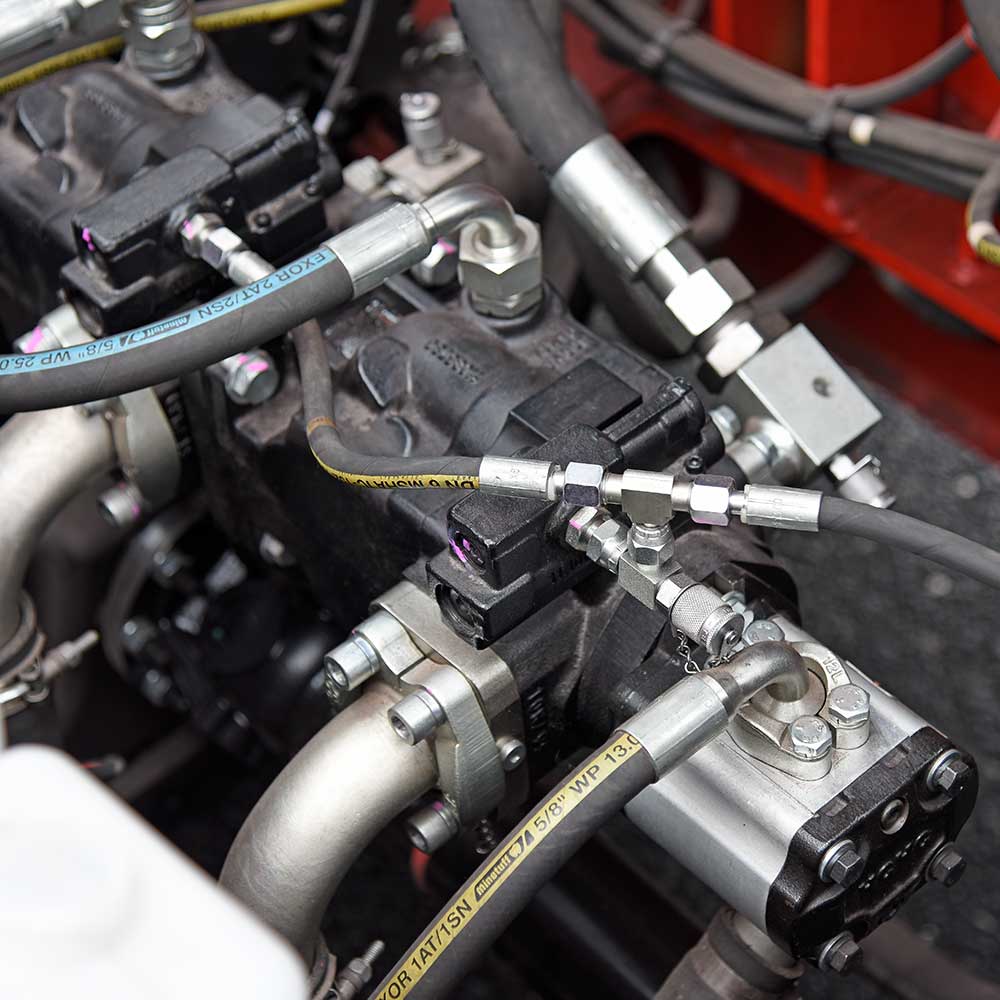
Hydraulic Systems
The hydraulic system is the powerhouse that generates the force needed for lifting and tilting functions. It consists of several components, such as hydraulic cylinders, hoses, valves, and a hydraulic fluid reservoir, enabling precise control over the mast movement and the forks.
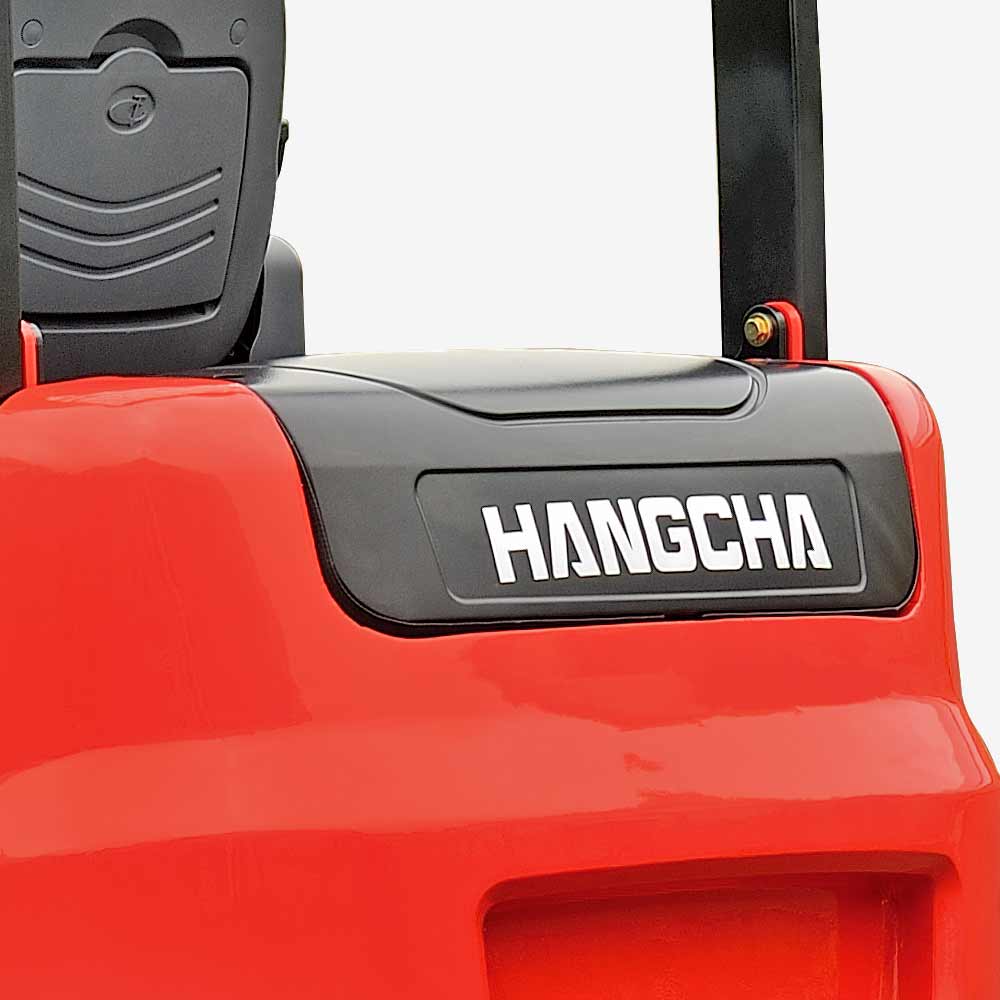
Counterweight
Counterweights are found at the rear of the forklift. It works to maintain weight distribution and balances the load lifted at the front of the equipment. This prevents the forklift from tipping over and ensures the user’s safety during operation.
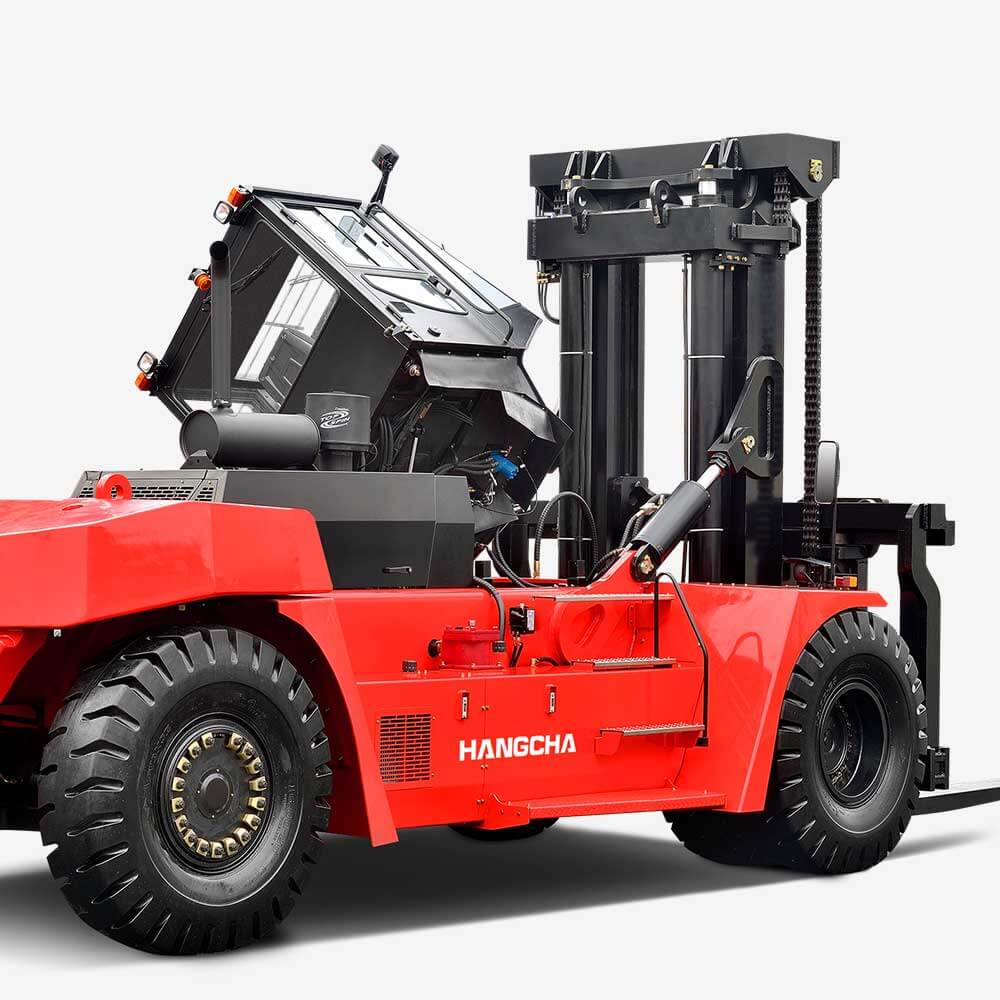
Chassis
The chassis or “frame” provides the foundation upon which the parts of the forklift rest. It provides structural integrity, supporting and evenly distributing the weight across the machine. A robust chassis ensures durability and safety, especially during heavy-duty operations.
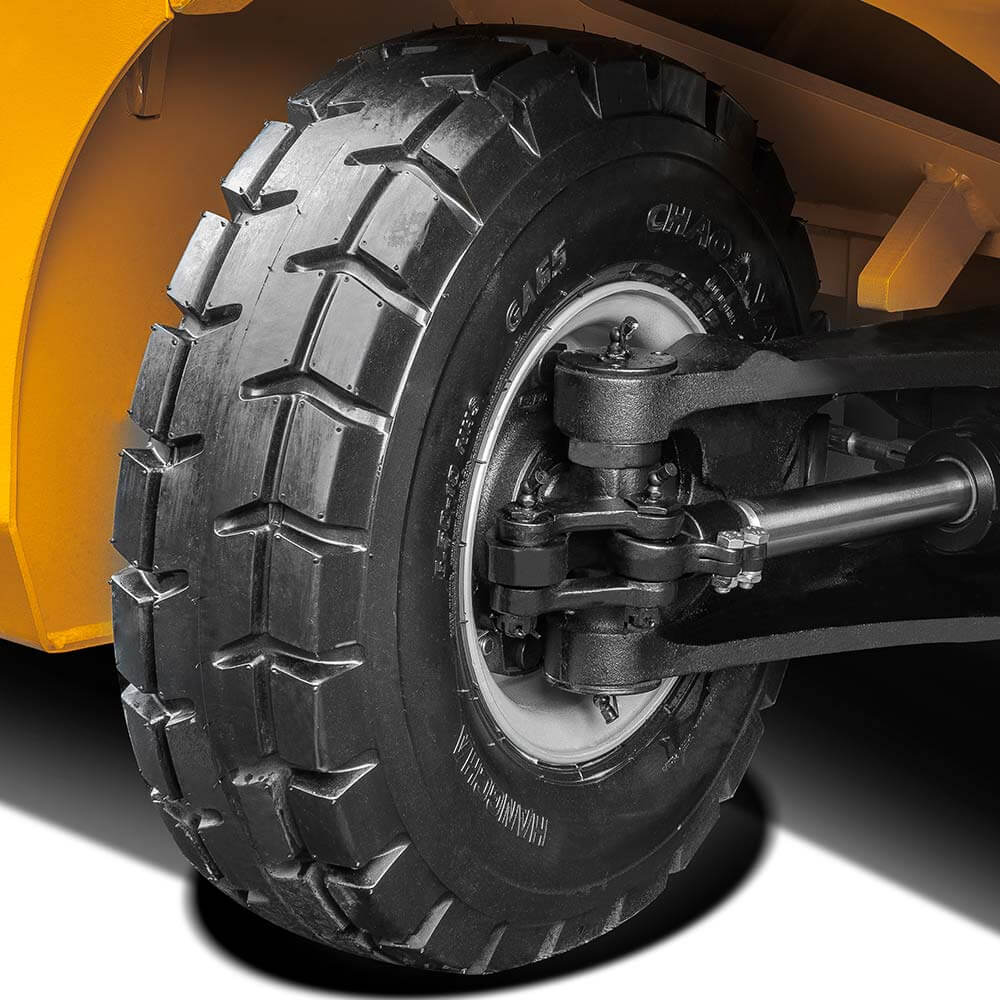
Wheels and Tires
The wheels and tires of the forklift act as the fulcrum or the point at which balance is kept, as it serves as the primary point of contact between the forklift and the ground. This forklift part can come in different types, depending on the operating environment, since forklifts, after all, can be used for indoor and outdoor applications. The wheels and tires contribute to the maneuverability and stability of the forklift, affecting overall performance.
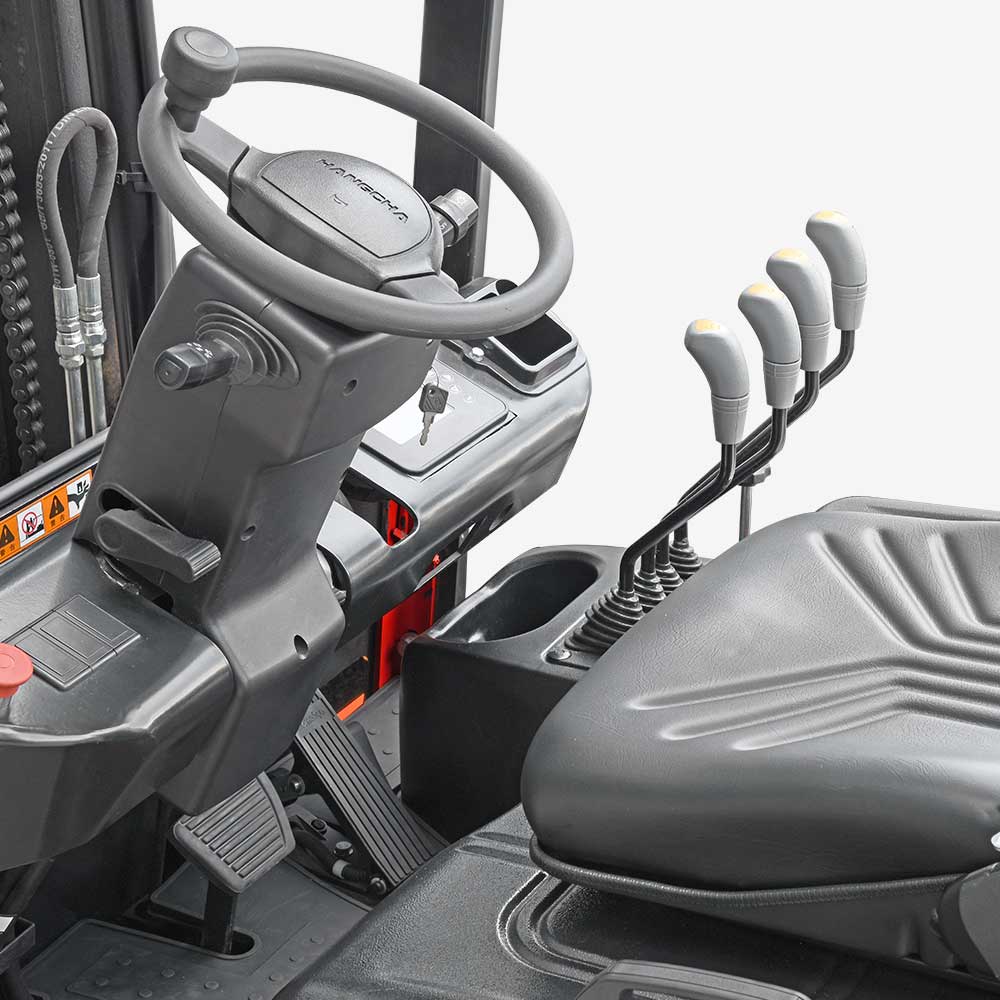
Steering System
Forklifts, like cars, turn per the will of the driver. In this case, the operator. The primary function of this forklift part is to provide directional stability. In most cases, forklifts often come with traditional steering wheels, but some units come with joystick controls. The steering system allows for precise navigation and management of the forklift’s movement.
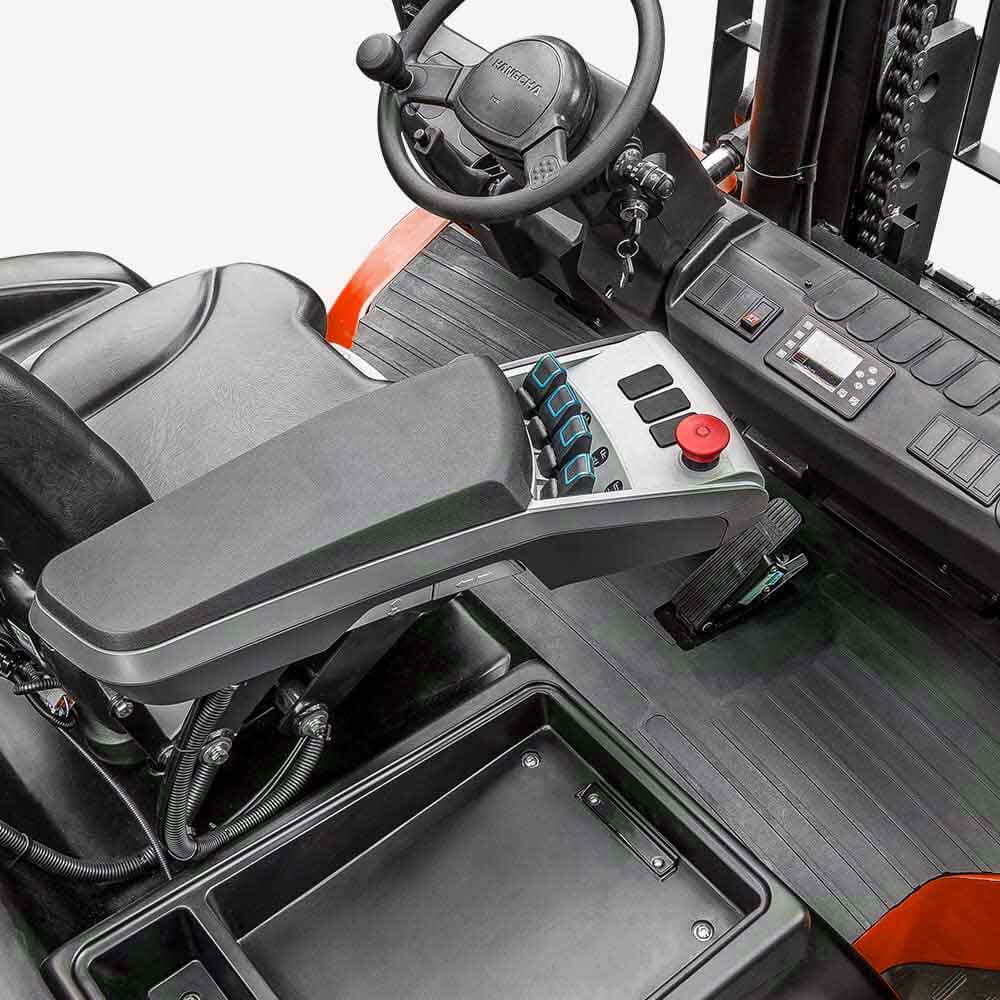
Operator Compartment
This part of the forklift is where the operators sit or stand during operation. It includes a dashboard with various indicators, levers for lifting and titling, pedals for acceleration, and braking. It also provides safety features such as seatbelts.
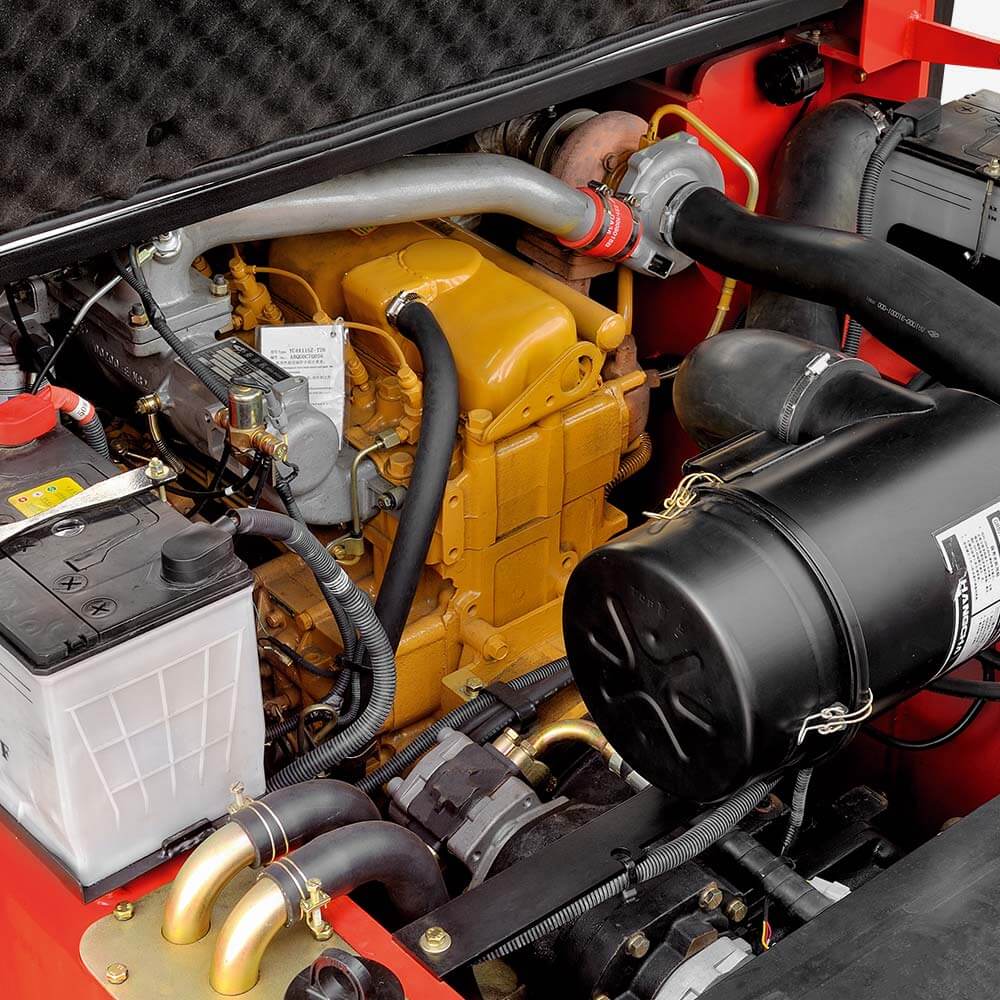
Engine and Power Source
Forklifts cannot operate without an intact power source. Whether internal combustion or electric, forklifts have an engine that provides the necessary power to get the forklift up and running. Depending on the type, forklifts can run on batteries, gasoline, diesel, or other fuels.
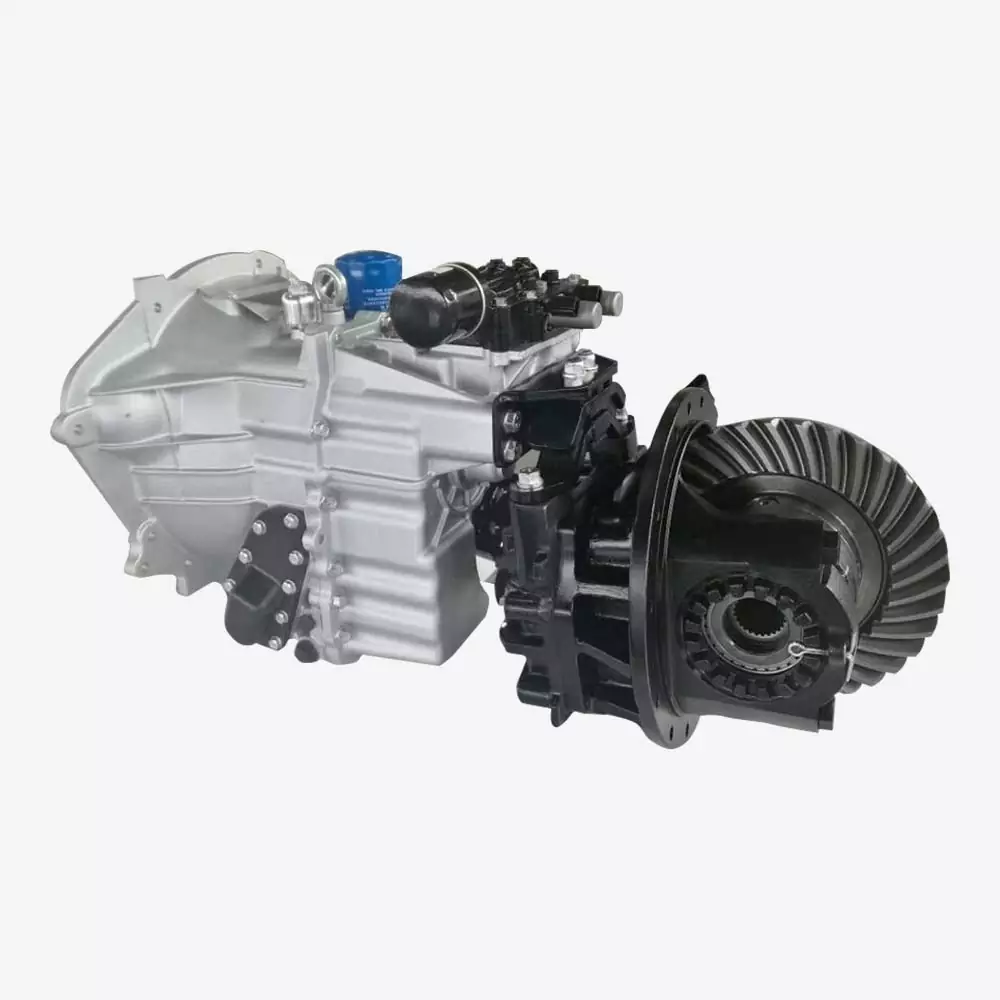
Transmission
Lastly, the function of a forklift’s transmission system is to channel the power from the engines to the driving wheels. It comprises different parts such as gears, shafts, and clutches. In short, it acts as a mediator between the forklift’s power and movement. It allows for the controlled adjustment of lifting and moving tasks, ensuring optimal performance.
Great! Now you have a general knowledge of the different forklift parts and their functions. The next time you encounter these parts, you’ll be the first to remember the intricacies surrounding the details of a forklift and how these components make material handling possible.
Importance of Knowing about Forklift Parts
Understanding the various forklift parts is important, especially for those who come in contact with these machines daily. By familiarizing yourself with these parts, you are one step closer to effectively operating these forklifts.
In the future, once you’re well-versed in forklift parts, you’ll be more than prepared to make informed decisions concerning maintenance and repairs. Awareness of how each piece functions makes identifying signs of wear and tear easier and promptly addressing any issues. This proactive approach can help prevent costly breakdowns and ensure the longevity of your forklift fleet.
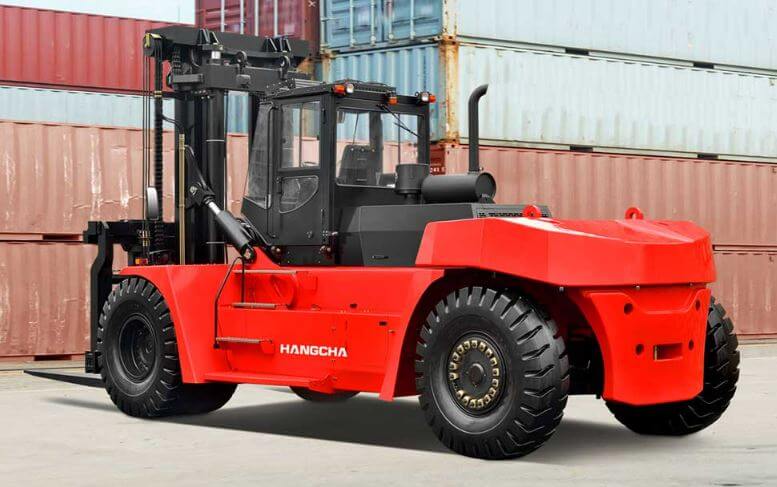
Elevating Material Handling Solutions
At Noble Philippines, we redefine the material handling landscape with our innovative forklift solutions. As the trusted distributor of Hangcha forklifts in the Philippines, we are dedicated to providing businesses with high-performance forklifts and cutting-edge technologies that will empower them to optimize their operations. With an unwavering commitment to quality, safety, and reliability, we are your strategic partner for all material handling needs.
